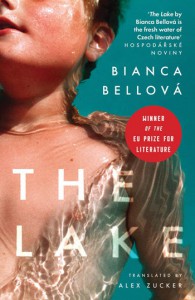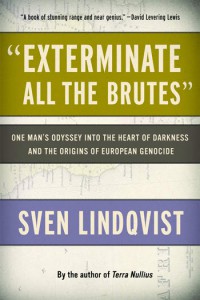From a newly translated work of Czech dystopian literature to a Swedish nonfiction chronicling the violence of European colonialism, here are our staff’s latest recommended reads. Sign up for our newsletter to get these recommendations delivered right to your inbox.

Since its publication in 2016, The Lake, the multiple award-winning dystopian novel by the Czech writer and translator Bianca Bellová, has been translated into 20 languages and is now finally available in Alex Zucker’s English version. Comprising four chapters whose titles echo the stages of the evolution of an insect, it is a coming-of-age story of Nami, a boy who grows up in a small, Russian-occupied town dominated by the statue of “The Statesman”, situated on the shore of the ever-shrinking and heavily polluted lake. Its dwindling stock of fish provides the locals with their only source of income and is home to a baleful Lake Spirit whom they try to appease with sinister burying rituals. Brought up by his grandma, the teenage Nami sets out for the city in search of his long-lost mother and, after experiencing horrendous exploitation and violence, returns to his home town to find a redemption of sorts by diving into the lake. Clearly inspired by the author’s experience of growing up under Soviet occupation and possibly also by the Russian annexation of the Crimea, this bleakly powerful portrayal of a downtrodden society under Russian occupation has acquired a new resonance in early 2022.
—Julia Sherwood, Editor-at-Large for Slovakia

“It is not knowledge that we lack. What is missing is the courage to understand what we know and draw conclusions.” In his best-known book, Exterminate All the Brutes (tr. Joan Tate), Swedish writer Sven Lindqvist travels from El Menia in Algeria to Zinder in Niger, constantly struggling with sand that reaches every corner of his eyes, his luggage, and his floppy disks—the original book is from 1992, with many re-prints since. His journey through the Sahara also becomes a journey into Europe’s colonial history, with parallels to the Polish-British writer and seaman Joseph Conrad. As a horrified witness to colonial brutality, Conrad wrote Heart of Darkness as a commentary to an ongoing debate, where European colonial violence almost invariably is excused, glossed over, and even justified. Lindqvist’s book shows how Nazism wasn’t an anomaly in an otherwise peaceful and democratic Europe—all ideas and methods applied by the Nazis had already been developed before them by Europeans of different nationalities. Still as relevant today as when Lindqvist’s book first was published, it inspired Raoul Peck’s HBO documentary of the same name from 2021.
—Eva Wissting, Editor-at-Large for Sweden
*****
Read more on the Asymptote blog:

